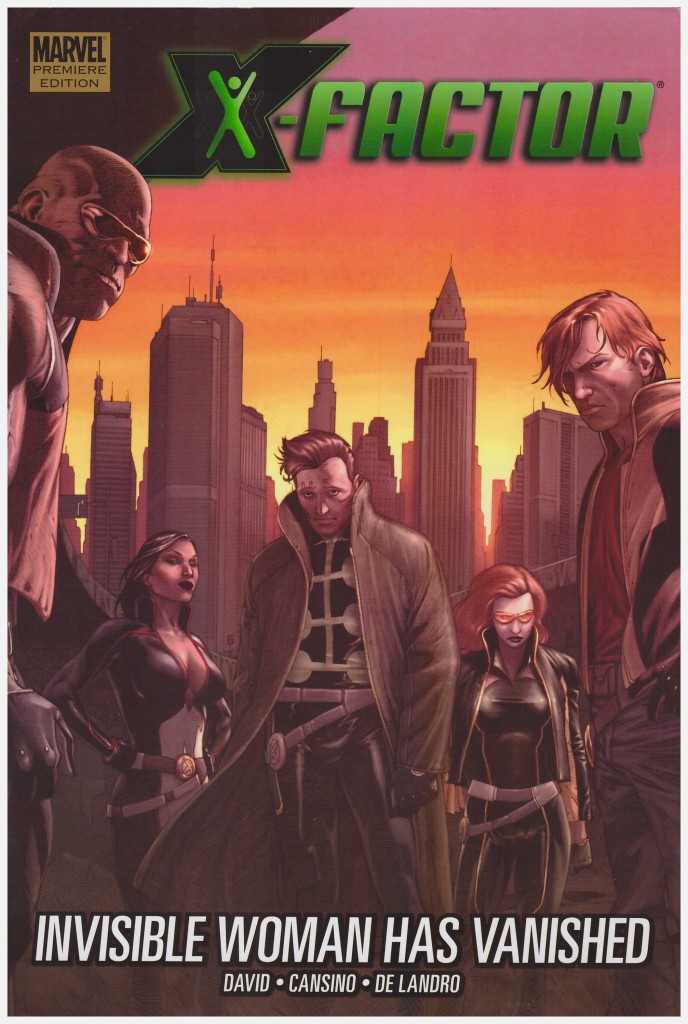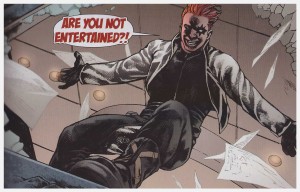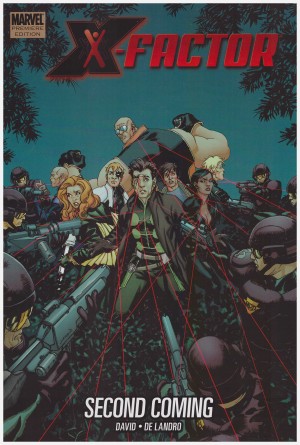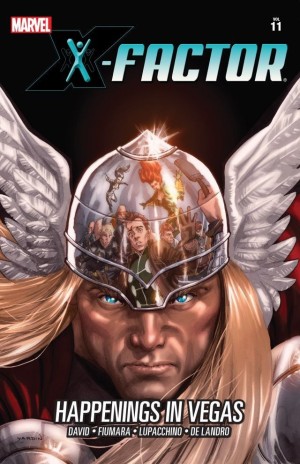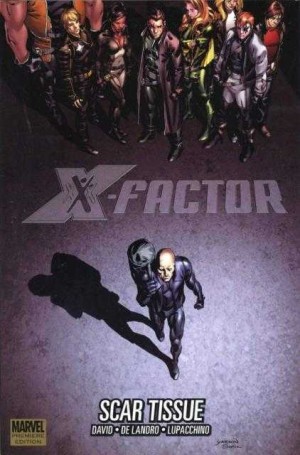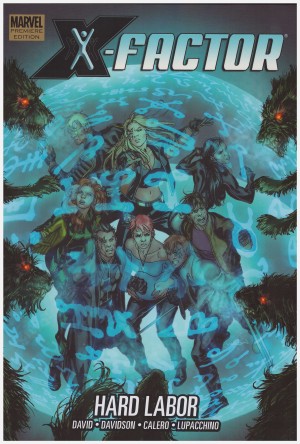Review by Frank Plowright
A pretty good title stems from the arrival in X-Factor’s offices of Franklin and Valeria Richards, children of the Fantastic Four’s Mr Fantastic and Invisible Woman. Their mother is missing, their father is lying to them, and the other FF members are unavailable or unconcerned.
Matters around X-Factor have been rather complicated over the last few volumes, what with the hopping back and forth through time (Time and a Half, Overtime), but for those wanting a sample book from Peter David’s run this is the one to pick. It features almost a full package of X-Factor members, no plot threads that aren’t easily picked up, a full complement of amusing, character revealing dialogue and some excellent surprises, not least Layla Miller’s first meeting with Longshot. David’s enjoyed writing the imperious and arrogant Doctor Doom so much in the course of Overtime that he’s also back.
Not quite as sparkling is the artwork. Bing Cansino and Marco Santucci are capable artists, but their layouts lack a dynamism, and sometimes don’t serve the story in the best manner. David’s conclusion to the Invisible Woman sequence is abrupt and effective, but he has to spell out what’s occurred in the dialogue as it’s not immediately apparent from the art. Cansino’s version of the Thing is also very much a throwback to 1964.
The returning Valentine De Landro is far better on a chapter that’s in effect a Strong Guy solo story leading into the next volume, Second Coming, and featuring a villain new to the mutant titles, but familiar to Marvel readers.
A closing chapter looks in on Siryn, currently absent from the main team, and understandably not at her best. Karl Moline’s art ventures a little too far into cartooning, but David comes through with a tale that’s little more than a conversation, but one delving to the core of what Siryn is. He’s so good with the fast-paced witty dialogue, that there’s a tendency to under-estimate David’s skill at reaching into his characters. There are no jokes here, yet it’s a fine piece within a book in which he’s on top form. It’s just a shame about much of the dull art.
